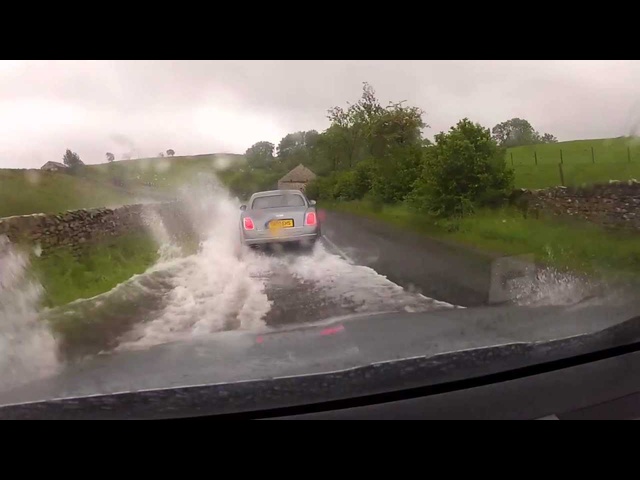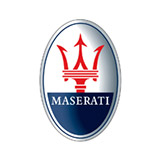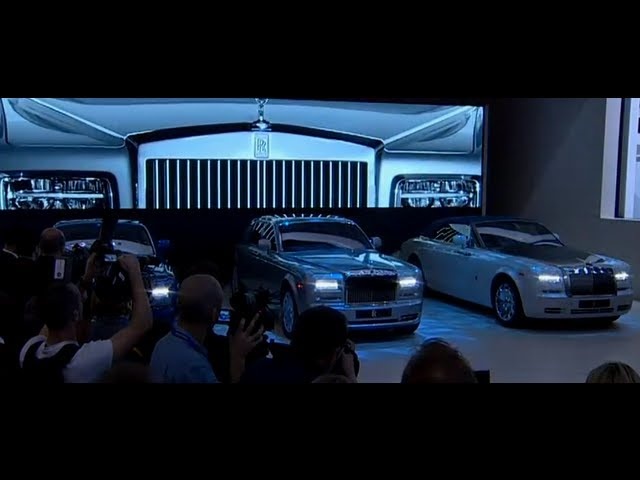Views: 63049
Dakar 2013 Rally How Hard? Paris Dakar Crashes Carjam TV HD Iveco Trucks Commercial - 2014
CARJAM TV - Subscribe Here Now http://www.youtube.com/carjamradio
Like Us Now On Facebook: http://www.facebook.com/CarjamTV
For The World's Best Car Videos
Website: http://www.carjamtv.com
Twitter: http://www.twitter.com/carjamtv
Tumblr: http://www.carjamtv.tumblr.com/
Facebook: http://www.facebook.com/CarjamTV
Pinterest: http://www.pinterest.com/carjamtv/carjam-tv/
YouTube: http://www.youtube.com/user/CarjamRadio
The Dakar Rally (or simply "The Dakar"; formerly known as "The Paris--Dakar" or "Paris to Dakar Rally") is an annual off-road race. Part of the Dakar Series, it is organised by the Amaury Sport Organisation. Most events since the inception in 1978 were from Paris, France, to Dakar, Senegal, but due to security threats in Mauritania, which led to the cancellation of the 2008 rally, the 2009 Dakar Rally was run in South America (Argentina and Chile).[1] It has been held in South America each year since 2009.[2][3] The race is open to amateur and professional entries, amateurs typically making up about eighty percent of the participants.
The Dakar Rally three major competitive groups in the Dakar are the motorcycle (moto) class (including quadbikes as one of the sub-classes), the Dakar Rally car class, (which ranges from buggies to small SUVs) and the Dakar Rally truck class. Many vehicle manufacturers exploit the harsh environment the Dakar Rally offers as a testing ground and consequently to demonstrate the durability of their vehicles, although most vehicles are heavily modified or purpose built.
Dakar Rally Moto class
The Dakar Rally Moto class is divided between three groups. Group 1 is Dakar Rally Marathon, which are mildly modified production motorcycles, subdivided between engines of greater and less than 451 cc (28 cu in).[12] Dakar Rally Group 2 is Super-Production bikes, which are more substantially modified than Marathon bikes, subdivided between engines of greater and less than 451 cc.[12] Group 3 for quads, subdivided between engines of greater and less than 500 cc.[12]
From 2012, the Dakar Rally two-wheeled motorcycles are limited to 450cc.
Winning Dakar Rally motorcycles include those made by Honda, KTM, Yamaha and BMW.
Dakar Rally Car class—T1, T2 and Open
The Dakar Rally car class is made up of vehicles weighing less than 3,500 kg (7,716 lb) and subdivided into several categories. The Dakar Rally T1 Group is made up of Improved Cross Country Vehicles and the Dakar Rally T2 Group is made up of Cross Country Series Production vehicles.[13] The Dakar Rally Open class accepts weight-qualifying vehicles such as SCORE International trucks.[13]
Originally, European utility vehicles like the Renault 4, Land Rover Defender, Range Rover, Mercedes-Benz G, Volkswagen Iltis and the Pinzgauer, as well the Japanese Toyota Land Cruiser Cygnus, dominated the Dakar Rally race. Mitsubishi Pajero/Montero is the most successful model in Dakar Rally race history, including 7 years straight (2001--2007). Other manufacturers have entered heavily modified street vehicles in Dakar Rally such as Rolls-Royce, Citroën, Peugeot (405 T16 and 205 T16) and Porsche.
In 2003, prominent examples in the Dakar Rally Car Class included the Mitsubishi Pajero/Montero, the Volkswagen Race Touareg, the Bowler Wildcat 200 and the Nissan Navara, as well as the Mercedes Benz M and a range of BMW X Models, such as the BMW X6, BMW X5 and BMW X3. Hummer H1 and Hummer H3 sport-utilities were also represented, but did not appear in the Dakar Rally leader positions.
Jean-Louis Schlesser built a series of custom dune buggy vehicles for the Dakar Rally race and has won with them several times. American ("Baja") style pro trucks have also made appearances in the Dakar Rally, but they have seldom won.
Dakar Rally Truck class—T4 and T5
The Dakar Rally Truck class, also known as "Camions" or "Lorries", is made up of vehicles weighing more than 3,500 kg (7,716 lb).[14] They are divided into two groups, T4 and T5.
Dakar Rally T4 class trucks participate in the competition, while T5 trucks are rally support trucks, which means they travel from bivouac to bivouac to support the competition vehicles.[14] T4 trucks may provide assistance during the special stages, but must be homologated vehicles. The T4.1 class covers production trucks, and the T4.2 class covers modified trucks.[15]
Dakar Rally T5 class trucks do not have to be homologated.[14]
The Dakar Rally T4 class has been composed of vehicles manufactured by Tatra, LIAZ, Kamaz, Hino, MAN, DAF, Mercedes-Benz, Unimog, Renault Kerax, SCANIA, IVECO, and GINAF. In the 1980s, a strong rivalry between DAF and Mercedes-Benz led to vehicles which had twin engines and more than 1000 hp (750 kW). Later Tatra, and Kamaz took the race up. After Dakar Rally 2000, renewed competition started in the truck class between DAF, Tatra, Mercedes-Benz and Kamaz. http://en.wikipedia.org/wiki/Dakar_Rally
Like Us Now On Facebook: http://www.facebook.com/CarjamTV
For The World's Best Car Videos
Website: http://www.carjamtv.com
Twitter: http://www.twitter.com/carjamtv
Tumblr: http://www.carjamtv.tumblr.com/
Facebook: http://www.facebook.com/CarjamTV
Pinterest: http://www.pinterest.com/carjamtv/carjam-tv/
YouTube: http://www.youtube.com/user/CarjamRadio
The Dakar Rally (or simply "The Dakar"; formerly known as "The Paris--Dakar" or "Paris to Dakar Rally") is an annual off-road race. Part of the Dakar Series, it is organised by the Amaury Sport Organisation. Most events since the inception in 1978 were from Paris, France, to Dakar, Senegal, but due to security threats in Mauritania, which led to the cancellation of the 2008 rally, the 2009 Dakar Rally was run in South America (Argentina and Chile).[1] It has been held in South America each year since 2009.[2][3] The race is open to amateur and professional entries, amateurs typically making up about eighty percent of the participants.
The Dakar Rally three major competitive groups in the Dakar are the motorcycle (moto) class (including quadbikes as one of the sub-classes), the Dakar Rally car class, (which ranges from buggies to small SUVs) and the Dakar Rally truck class. Many vehicle manufacturers exploit the harsh environment the Dakar Rally offers as a testing ground and consequently to demonstrate the durability of their vehicles, although most vehicles are heavily modified or purpose built.
Dakar Rally Moto class
The Dakar Rally Moto class is divided between three groups. Group 1 is Dakar Rally Marathon, which are mildly modified production motorcycles, subdivided between engines of greater and less than 451 cc (28 cu in).[12] Dakar Rally Group 2 is Super-Production bikes, which are more substantially modified than Marathon bikes, subdivided between engines of greater and less than 451 cc.[12] Group 3 for quads, subdivided between engines of greater and less than 500 cc.[12]
From 2012, the Dakar Rally two-wheeled motorcycles are limited to 450cc.
Winning Dakar Rally motorcycles include those made by Honda, KTM, Yamaha and BMW.
Dakar Rally Car class—T1, T2 and Open
The Dakar Rally car class is made up of vehicles weighing less than 3,500 kg (7,716 lb) and subdivided into several categories. The Dakar Rally T1 Group is made up of Improved Cross Country Vehicles and the Dakar Rally T2 Group is made up of Cross Country Series Production vehicles.[13] The Dakar Rally Open class accepts weight-qualifying vehicles such as SCORE International trucks.[13]
Originally, European utility vehicles like the Renault 4, Land Rover Defender, Range Rover, Mercedes-Benz G, Volkswagen Iltis and the Pinzgauer, as well the Japanese Toyota Land Cruiser Cygnus, dominated the Dakar Rally race. Mitsubishi Pajero/Montero is the most successful model in Dakar Rally race history, including 7 years straight (2001--2007). Other manufacturers have entered heavily modified street vehicles in Dakar Rally such as Rolls-Royce, Citroën, Peugeot (405 T16 and 205 T16) and Porsche.
In 2003, prominent examples in the Dakar Rally Car Class included the Mitsubishi Pajero/Montero, the Volkswagen Race Touareg, the Bowler Wildcat 200 and the Nissan Navara, as well as the Mercedes Benz M and a range of BMW X Models, such as the BMW X6, BMW X5 and BMW X3. Hummer H1 and Hummer H3 sport-utilities were also represented, but did not appear in the Dakar Rally leader positions.
Jean-Louis Schlesser built a series of custom dune buggy vehicles for the Dakar Rally race and has won with them several times. American ("Baja") style pro trucks have also made appearances in the Dakar Rally, but they have seldom won.
Dakar Rally Truck class—T4 and T5
The Dakar Rally Truck class, also known as "Camions" or "Lorries", is made up of vehicles weighing more than 3,500 kg (7,716 lb).[14] They are divided into two groups, T4 and T5.
Dakar Rally T4 class trucks participate in the competition, while T5 trucks are rally support trucks, which means they travel from bivouac to bivouac to support the competition vehicles.[14] T4 trucks may provide assistance during the special stages, but must be homologated vehicles. The T4.1 class covers production trucks, and the T4.2 class covers modified trucks.[15]
Dakar Rally T5 class trucks do not have to be homologated.[14]
The Dakar Rally T4 class has been composed of vehicles manufactured by Tatra, LIAZ, Kamaz, Hino, MAN, DAF, Mercedes-Benz, Unimog, Renault Kerax, SCANIA, IVECO, and GINAF. In the 1980s, a strong rivalry between DAF and Mercedes-Benz led to vehicles which had twin engines and more than 1000 hp (750 kW). Later Tatra, and Kamaz took the race up. After Dakar Rally 2000, renewed competition started in the truck class between DAF, Tatra, Mercedes-Benz and Kamaz. http://en.wikipedia.org/wiki/Dakar_Rally
More by CARJAM TV
-
 2014 Bentley Mulsanne Off Road Flooding Cool ...
2014 Bentley Mulsanne Off Road Flooding Cool ...
 Bentley
Views: 28250
Bentley
Views: 28250 -
 Bentayga EWB Azure (Special Launch Edition) ...
Bentayga EWB Azure (Special Launch Edition) ...
 Bentley
Views: 2483
Bentley
Views: 2483 -
 Maserati SUV 2011 New Kubang In Detail Commercial ...
Maserati SUV 2011 New Kubang In Detail Commercial ...
 Maserati
Views: 5490
Maserati
Views: 5490 -
 Rolls Royce Phantom II HD Debut Press Launch In ...
Rolls Royce Phantom II HD Debut Press Launch In ...
 Rolls Royce
Views: 38967
Rolls Royce
Views: 38967





